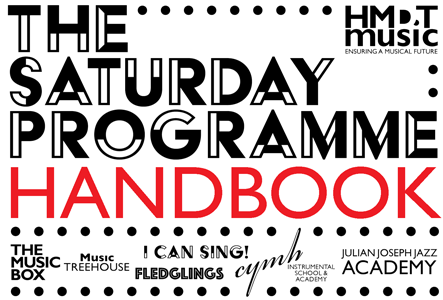< Previous page 17. / Next page 19. >
19. CHILD PROTECTION
HMDT Music recognises that it has a responsibility for
the safety of children in its care. It also recognises that good child protection policies and
procedures are of benefit to everyone involved with its activities, including staff and contracted
artists, as well as parents and others on site during the term.
All staff that have unsupervised contact with children are required to:
- recognise and accept their responsibilities;
- develop awareness of the issues which cause children harm;
- report concerns to senior HMDT Staff.
HMDT Music will endeavour to safeguard children by:
a) adopting child protection procedures and a code of practice for all staff;
b) reporting concerns to the authorities;
c) ensuring all staff have been police checked through the Criminal Records Bureau;
d) ensuring that all staff have read and are willing to implement this policy.
A culture of mutual respect between children and HMDT Music staff and artists is encouraged,
with adults modelling good practice in this context.
Summary of the Code of Practice
1. It is important not to have unnecessary physical contact with children, and contact
should be avoided except when engaged in the teaching of vocal/instrumental technique or
other activities which require contact for artistic purposes. Technique will normally be taught
by explanation and by the tutor modelling good practice. Where explanation and modelling
requires additional demonstration, or when a technical remedy has proved fruitless, a tutor’s
professional judgement may be that physical contact is required. Typical examples may be
related to the position of a bowing arm, or the correction of wrist or finger positions on the
student’s instrument. In such circumstances the following procedures must apply:
a) that the permission of the child has been requested and given;
b) that the demonstration of technique is NECESSARY in order for the student to achieve
the required result.
2. It is important for all parents/guardians to understand that physical contact may be
required in the proper training of certain musical or theatrical activities, and that in all
cases, artists and staff are required to follow the General Guidelines of Good Practice
contained in this Guide to Policy and Procedures.
3. Lessons missed during HMDT Music activities may not be rearranged at any other time
without the written permission of the parent/guardian, and without the knowledge of
HMDT Music. The same policy must be enacted for tutor’s who (often voluntarily and in an
unpaid capacity) wish to offer pupils extra lessons. This applies in particular to rearranged
lessons in pupils’ or tutor’s homes, but is also relevant if lessons are arranged outside the
normal supervised structure.
4. Pupils may not be given lifts in staff cars without written permission from the parent/carer.
This means that impromptu lifts (e.g. to avoid the rain, or dropping a child off on the way
home ARE NOT acceptable). Permission will be requested where, for instance, children
need to get to a concert/rehearsal venue early with a member of staff to help set up.
5. The use of parental video and cameras will no longer be allowed at HMDT Music events
without prior consent being obtained. Where HMDT Music for pedagogical or
publicity/marketing reasons wishes to record lessons, rehearsals or other events on
film/video/dvd, written permission will be required from the parents/carers of each child
involved.
6. One to one lessons will normally be taught in rooms that have windows in the doors.
7. It is expected that staff will not make suggestive or inappropriate remarks to or about a
child, even in fun, as this could be misinterpreted.
8. It is important not to deter children from making a disclosure of abuse for fear of not
being believed, and to listen to what they have to say. Staff should not attempt to
investigate a disclosure that gives rise to a child protection issue, but should report the
matter to the HMDT Music office. Staff should never promise a child complete
confidentiality in a child protection issue, but should advise pupils that the matter will be
referred on to the designated officers for child protection.
9. Staff should remember that those who abuse children can be of any age, gender, ethnic
background or class, and it is important not to allow personal preconceptions about
people to prevent appropriate action taking place.
10. Good practice includes valuing and respecting children as individuals, and the adult
modelling of appropriate conduct – which will always exclude bullying, shouting, racism,
sexism or sectarianism.
For a complete copy of our Child Protection Policy, please visit our website at
www.hmdt.org.uk and click on the Downloads section.

